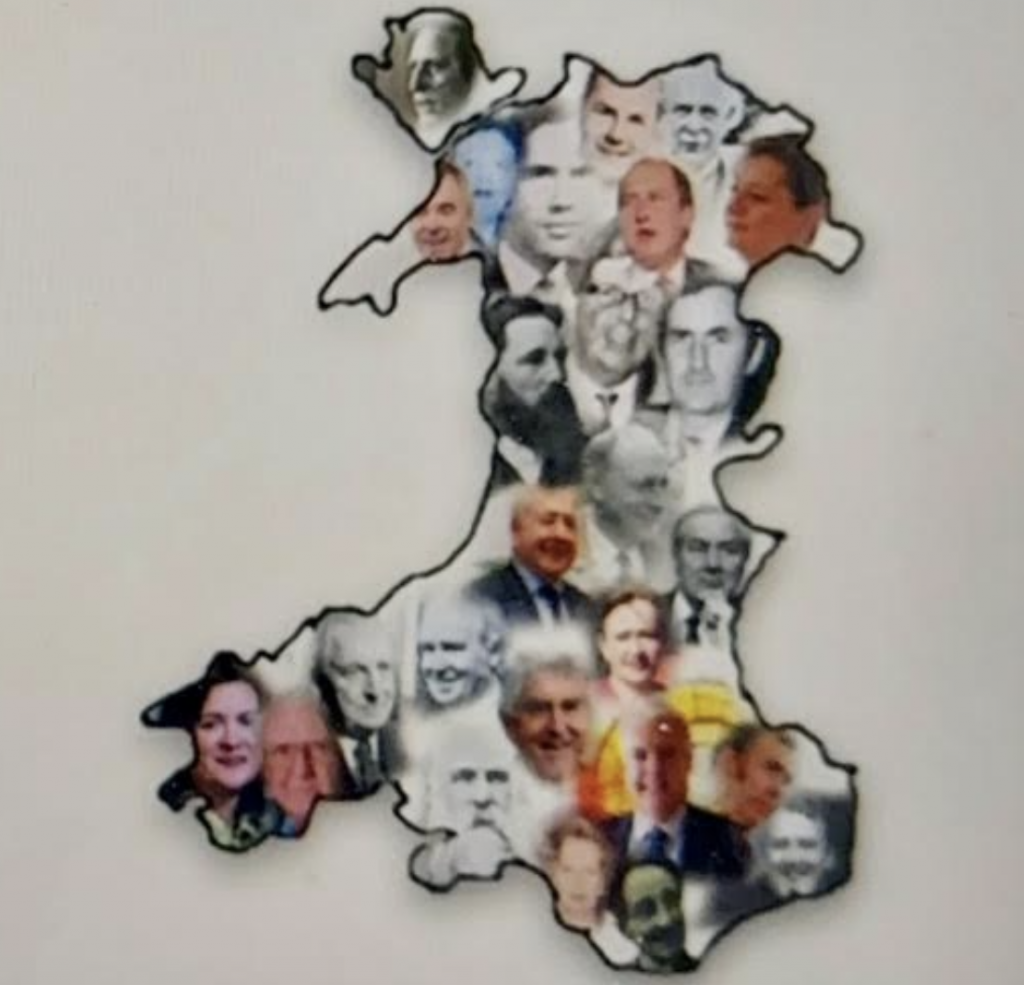Glyndwr Cennydd Jones reviews ‘Whose Wales?’ by Gwynoro Jones and Alun Gibbard, an exploration of how the Wales we know today came to be.
Debates regarding Home Rule, self-governance, or even independence for Wales, have inspired and enraged for well over a century.
It would be too simplistic to assert that any one political party has had a monopoly on driving the agenda for establishing devolution in Wales and, indeed, across this whole island mass located on the western fringes of the European seaboard.
No doubt, the trajectory of constitutional travel within each of the individual home nations impacts in turn on the others, bringing a complexity and dynamism to the study of how different parties’ organisational structures influence their relationships with the constituent parts of the UK.
Tensions between the needs of discrete territories in relation to the totality have often led to heated internal disagreements within political parties’ central decision-making mechanisms, particularly when tackling issues of representation and reform.
“Constitutional debates stir emotions, loyalties and passions… this book ducks none of the issues.”
Whose Wales? The Battle for Welsh Devolution and Nationhood: 1880 to 2020 sets out to explore the track record of the four main players in the Welsh devolution game from 1880 to 2020—namely Liberals, Conservatives, Labour and Plaid Cymru.
It navigates purposefully through stormy political waters to seek an answer to the question: can any one of them truly claim to have done more than the others?
Self-government, though a divisive proposition, was openly advocated by some parliamentarians, including Lloyd George, in the late 19th century.
In 1895 there was a motion in the House of Commons ‘to devolve upon Legislatures in Ireland, Scotland, Wales and England … the management and control of their domestic affairs.’
In 1911, Winston Churchill called for separate parliaments in Wales, Scotland and Ireland, and for regional assemblies in England.
Two years later, there was a significant debate in the House of Lords on whether the UK should become a federal state, with separate parliaments in each of its constituent parts.
Authored by a leading proponent of devolution from the 1970s onwards, former Labour MP Gwynoro Jones, and award-winning writer and former BBC journalist, Alun Gibbard, Whose Wales? is a captivating 450-page volume which examines the assertions and counterclaims surrounding the topic in hand.
The reader will be aware that constitutional debates stir emotions, loyalties and passions at levels of intensity rarely encountered in the daily melting pot of routine discourse on legislation and process, and this book ducks none of the issues.
Jones and Gibbard investigate the extensive history of calls for self-government, from the Cymru Fydd initiative of 1880/90s through to the Parliament for Wales movement of the 1950s, in order to provide a context for the intricate devolution campaigns of the 1970s.
Jones’s experience in preparing Labour’s evidence to the Crowther/Kilbrandon Commission on the UK constitution, quite apart from his long engagement with Welsh and European politics, provides a unique insight into the intriguing twists and turns of the era and the fractious relationships between many key protagonists, including himself and Plaid Cymru’s then President, the notable Gwynfor Evans. Indeed, Whose Wales? is compelling for its original analysis of the subject matter.
The authors suggest that devolution as introduced by the Tony Blair government of the late-1990s, a generation after the failed 1979 referendum for a Welsh Assembly, marked a return to concepts and trends which were largely put on hold by the demands of fighting two world wars in the first half of the 20th century and the economic challenges faced in their aftermath.
Subsequent to the successful 1997 referendum, the journey has taken a somewhat unexpected turn. The authors conclude:
‘Devolution, the actual realisation of the political ideal, has to a large extent, brought the two foes, Plaid Cymru and the Labour Party, to sit at the same table. They even shared power in a coalition government in the Cardiff Senedd for some years. But the path to get there was a rocky one, and it can’t be said that all is well even now.’
In many ways, the future of the UK, and Wales within it, is on more unsure ground than ever; a point picked up on by the political editor, Martin Shipton, in his preface to the book.
“Gwynoro Jones and Alun Gibbard provide irrefutable evidence that people from all four political parties in Wales played a role in promoting the cause of Home Rule”
‘Gwynoro Jones and Alun Gibbard provide irrefutable evidence that people from all four political parties in Wales played a role in promoting the cause of Home Rule… However, after nearly a quarter of a century of devolution, the future of the UK is uncertain. Within a few years, both Scotland and Northern Ireland may have left the UK.
At that point, the people of Wales would have to decide on their future. Would they be content to face permanent domination by their much bigger neighbour to the east? Or would they take the plunge and decide on independence?’
Appendices by David Melding CBE and I take up this challenge of articulating an alternative constitutional future for the UK in essays titled A Federal Model for the UK and A Sovereign Wales in an Isle-wide Confederation respectively.
The book comes endorsed by former First Minister of Wales, Carwyn Jones, whose recommendation indicates the text’s historical breadth and the perhaps surprising nature of the story which it tells:
‘Alun Gibbard and Gwynoro Jones have traced the revival of Wales from the industrialising country of the 1880s and the nonconformist consciousness that led to Sunday closing.
They describe the bitter battles over devolution in the 1970s through to the small margin in favour of a Welsh Assembly in 1997 and on to the well-established lawmaking, tax-varying Parliament with solid public support that we see today.
We were not meant to be here. This book shows how we survived.’
All articles published on the welsh agenda are subject to IWA’s disclaimer.




